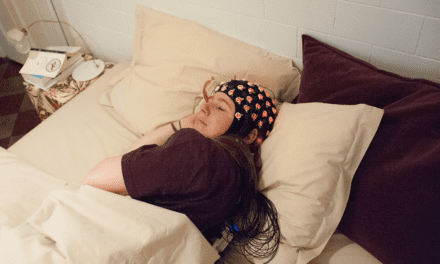The United Kingdom (UK) is a nation of restless sleepers, with over a fifth (22%) of adults confessing to accidentally falling asleep at work.
In fact, Samsung’s 2023 Global Sleep Health Study, analyzing 716 million nights of sleep behaviors from Samsung Health users worldwide, revealed the UK is the country with the lowest sleep efficiency in Europe.
And the UK’s poor sleep isn’t just affecting adults at work, with new research by Samsung revealing that in the cinema (29%), on the toilet (10%), and even at the club (12%) are some of the other unexpected spots where the nation is nodding off.
So, what’s causing adults to start dozing at these inconvenient moments? According to hte survey, 45% of the nation admit that they stay up too late, with the average bedtime for UK adults being 11:54 pm.
A further 32% of the UK say working too hard is stopping them from getting much-needed rest, followed by 25% of adults who say overindulging in food is to blame.
And sleep disruptions don’t just lie with Brits, as globally the average sleep duration has dropped from seven hours and three minutes to six hours and 59 minutes, falling below the recommended seven-hour threshold set by the National Sleep Foundation.
Sleep debt, which measures the sleep inconsistency that indexes the gap between the amount of sleep during weekdays compared to the weekend, is a key contributor to global sleep issues as sleep consistency plays a major role in how sleep quality is determined. Globally, young adults in their 20s have nearly double the sleep debt compared to those in their 70s: 49 minutes versus 29 minutes, respectively.
In a society plagued by these bedtime battles, new research reveals that one in four (25%) of adults now dread bedtime as they know they will struggle to get to sleep. From avoiding caffeine (43%) to taking sleep medication (17%), Brits have tried it all to get a good night’s sleep, yet only 12% use a smartwatch to monitor their sleeping patterns.
But, interestingly, the number of people actively tracking sleep each week in 2023 increased 182% from 2021, according to Samsung Health app data, indicating more users are putting sleep as a priority and trying to improve it.
“If you fall asleep during the day without intending to, that is a clear sign of not getting enough sleep at night to stay healthy. This research suggests we could all do with working on improving our poor habits when it comes to our bedtime routines,” says Dr Julie Smith, a clinical psychologist, author, and content creator, in a release. “But to do this we need to have a good understanding of our sleeping habits.”
To help Brits maintain a steady sleeping pattern all week long, Smith shares her top tips:
- The best way to change unhealthy habits around sleep is to get clear on the things you are doing that contribute to that later bedtime, from the bigger things down to the smaller details.
- Once you have an idea of the habits that cause you to stay up late, target those one at a time. Start with something that feels easy to change and make that sustainable over time. This will build some momentum, so you will be less likely to give up and you’ll start to feel the benefits of improved sleep much sooner. Once that new habit is established, then move on to work on the others.
- Keep tracking your new habits and your sleep for longer than you think is necessary. It is extremely easy to slip back into those old ways when your goals are not at the forefront of your mind. It also helps to keep you motivated and on track each time see that your new habits are leading to better sleep.
Photo 97223278 © Antonio Guillem | Dreamstime.com





